The Right to a Jury Trial
for Municipal Offenses
Smith v. Isakson, 2021 ND 131
Smith v. Isakson
2021 ND 131
On Petition for Writ of Supervision
Factual Background
Smith set up a roadside stand selling political merchandise.
Police responded to a call from a nearby restaurant's employee.
The stand was between the sidewalk and South Washington Street.
The Charge
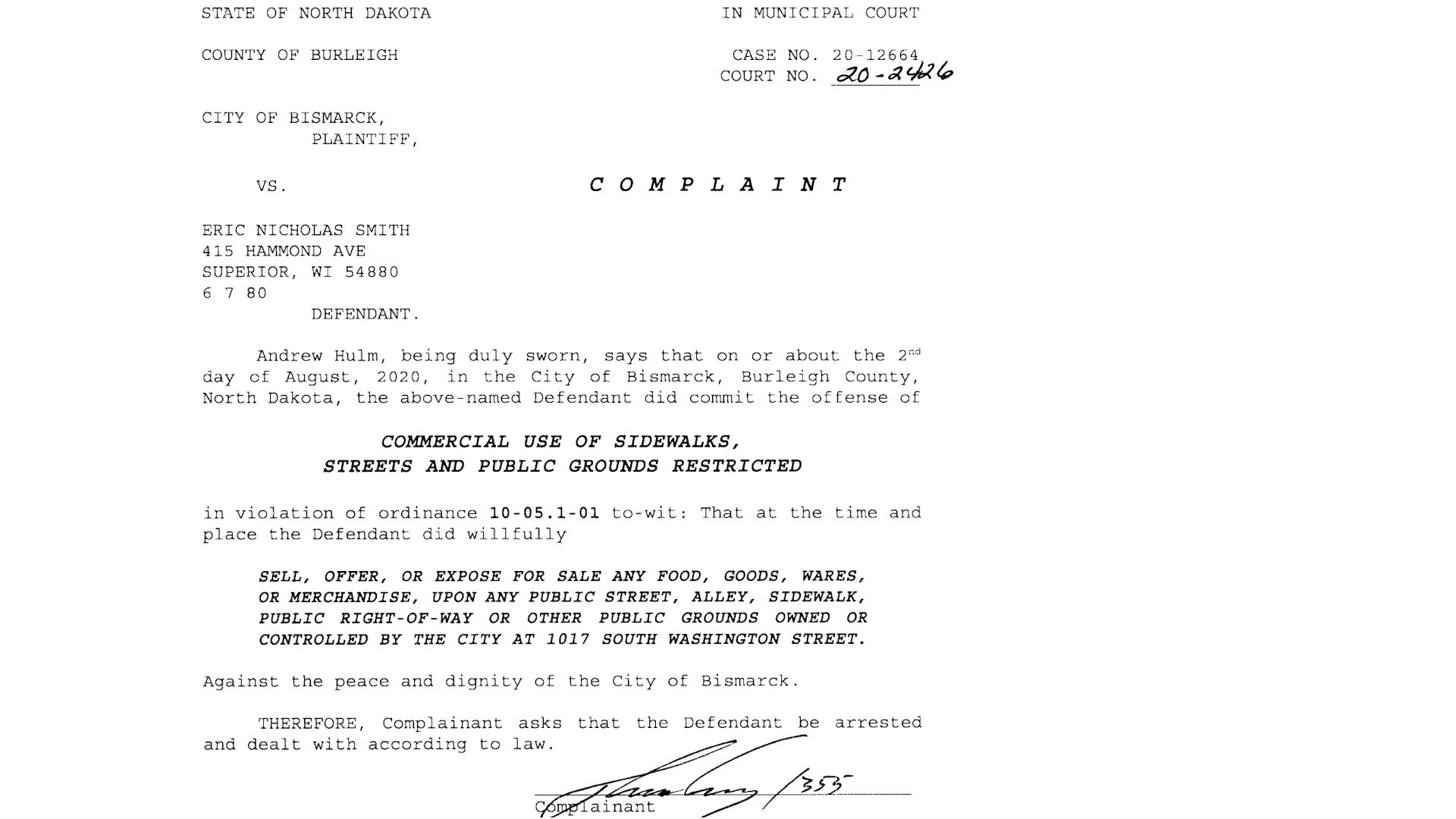
Procedural History
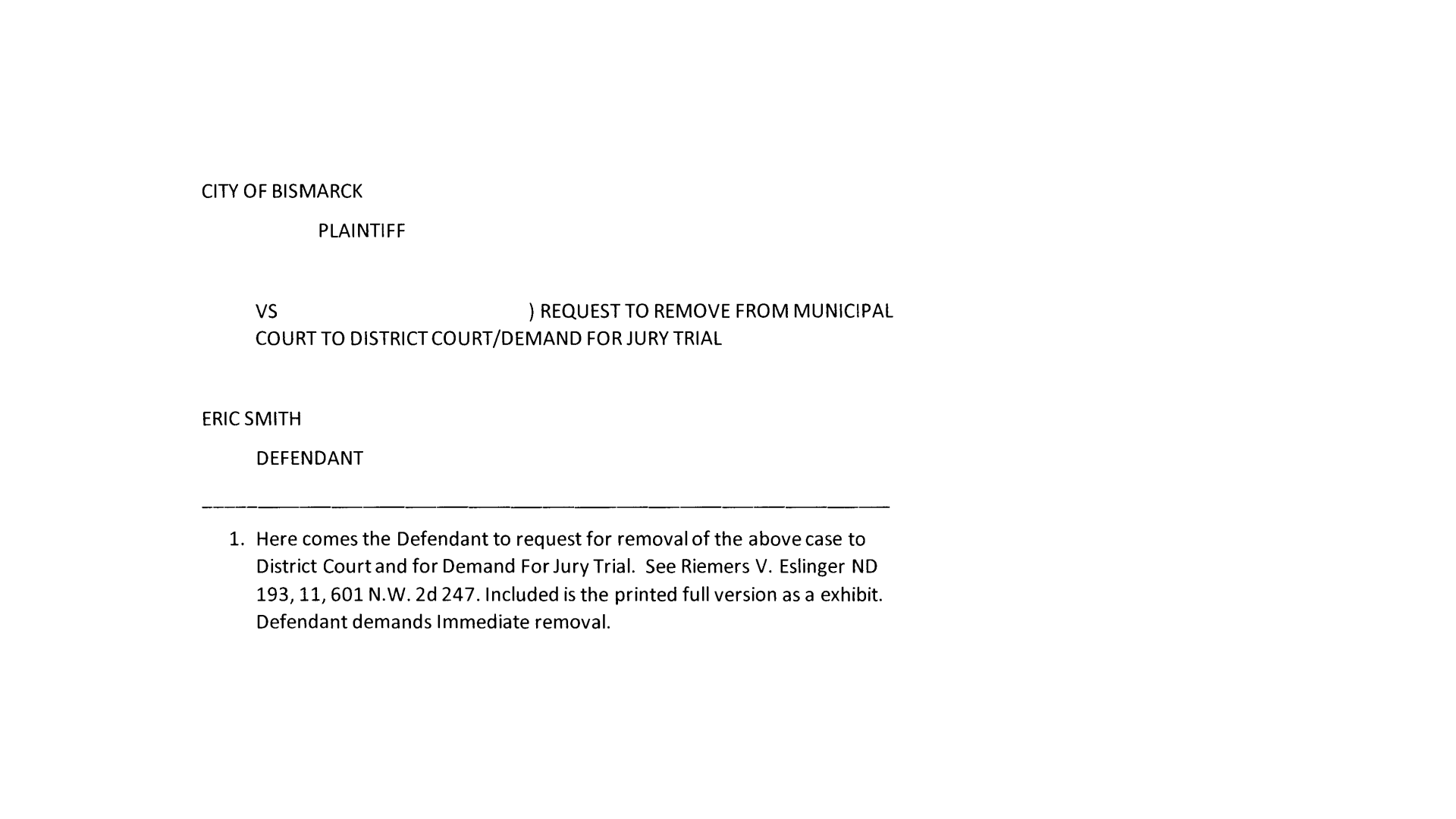
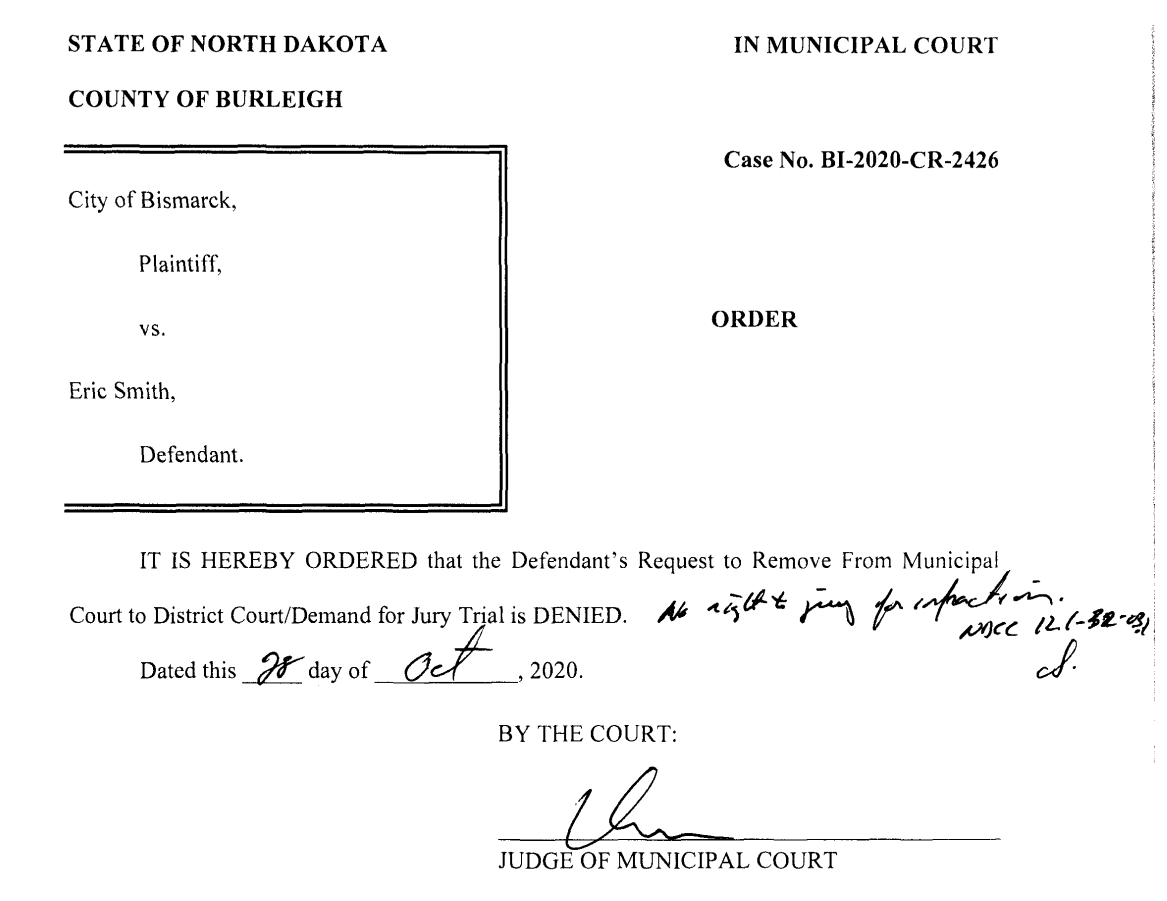
The Right of Trial by Jury
Section 13. The right of trial by jury shall be secured to all, and remain inviolate. A person accused of a crime for which he may be confined for a period of more than one year has the right of trial by a jury of twelve. The legislative assembly may determine the size of the jury for all other cases, provided that the jury consists of at least six members. All verdicts must be unanimous.
N.D. Const. art. I, § 13
The North Dakota Supreme Court has consistently described the right to a jury trial (and other provisions) as preserving the meaning understood at statehood

Justice Thomas Cooley
"What a court is to do, therefore, is to declare the law as written, leaving it to the people themselves to make such changes as new circumstances may require.
The meaning of the constitution is fixed when it is adopted, and it is not different at any subsequent time when a court has occasion to pass upon it."
Const. Lim. at 67-68 (5th ed. 1883)
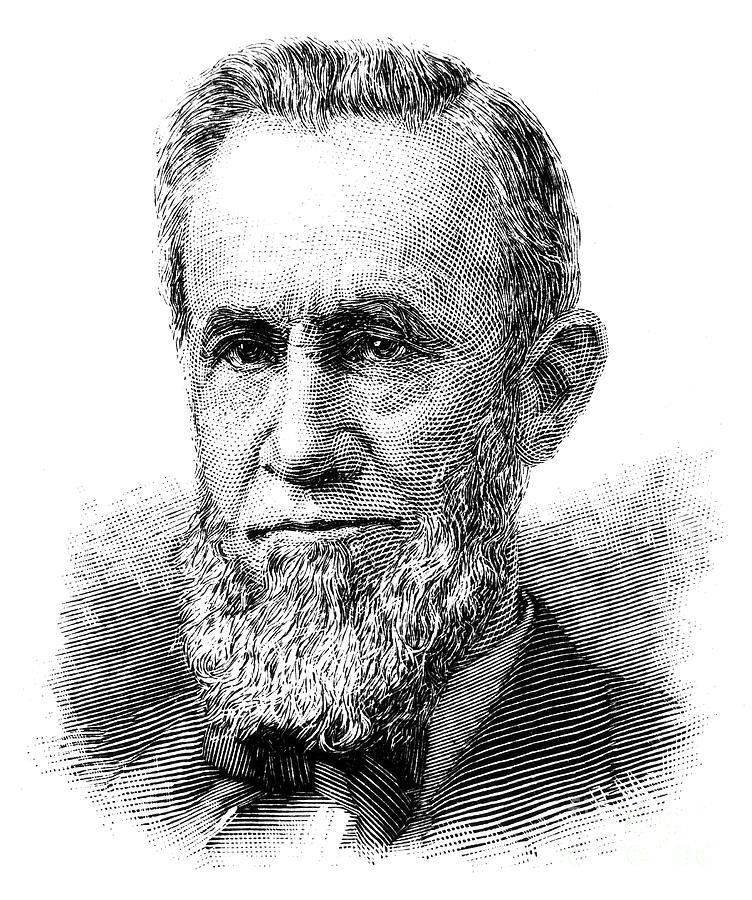
North Dakota Decisions
The Court has consistently looked to what was understood about the scope of the jury trial right by the people who adopted the state constitution in 1889.
Barry v. Truax (1904);
Smith v. Kunert (1907);
Bismarck v. Altevogt (N.D. 1984);
Interest of R.Z. (1987);
State v. $17,515 (2003);
Riemers v. Eslinger (2010)
Barry v. Truax
Barry tried and convicted for premeditated murder of Mallem. Reversed on appeal. At second trial, jury hung. Judge ordered venue change to another county, which prompted petition for writ.
Fixation: "a right well known and commonly understood at the time of its adoption, and it is the right so understood which is secured by it"

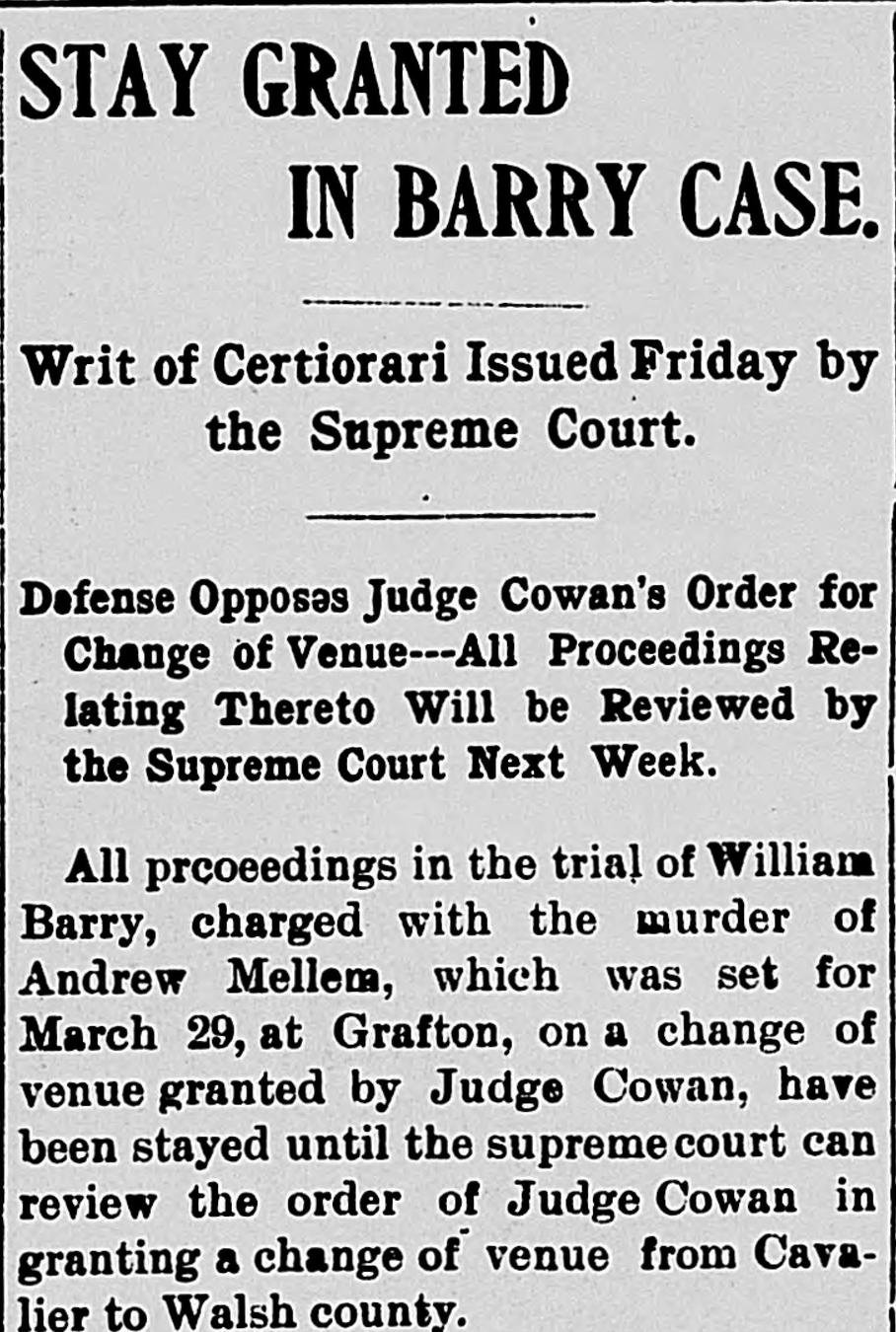
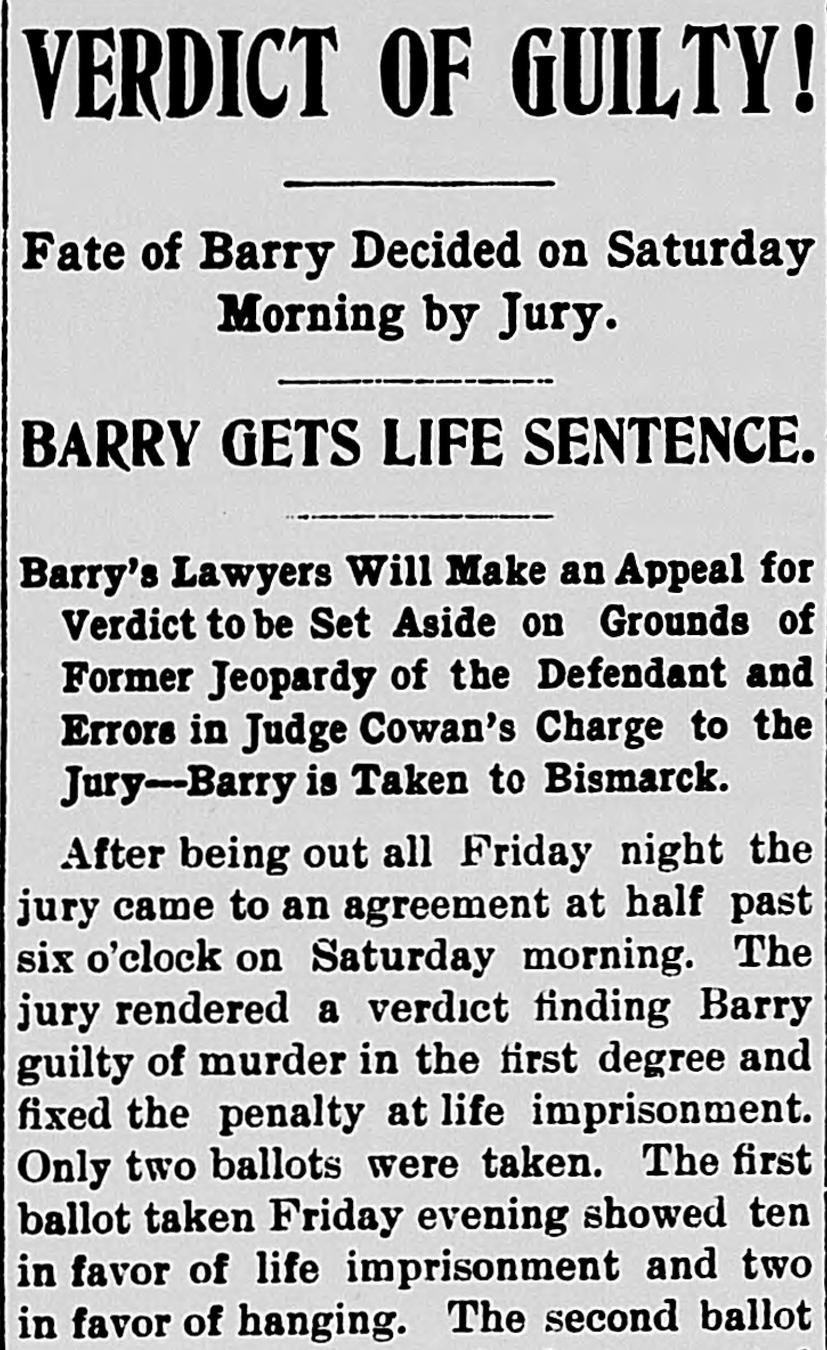
Riemers v Eslinger
We hold to our prior jurisprudence, that the right of trial by jury is determined by the laws as they existed at the time the Constitution of North Dakota was adopted. . . . The people of North Dakota may change this right if they choose.
2010 ND 76
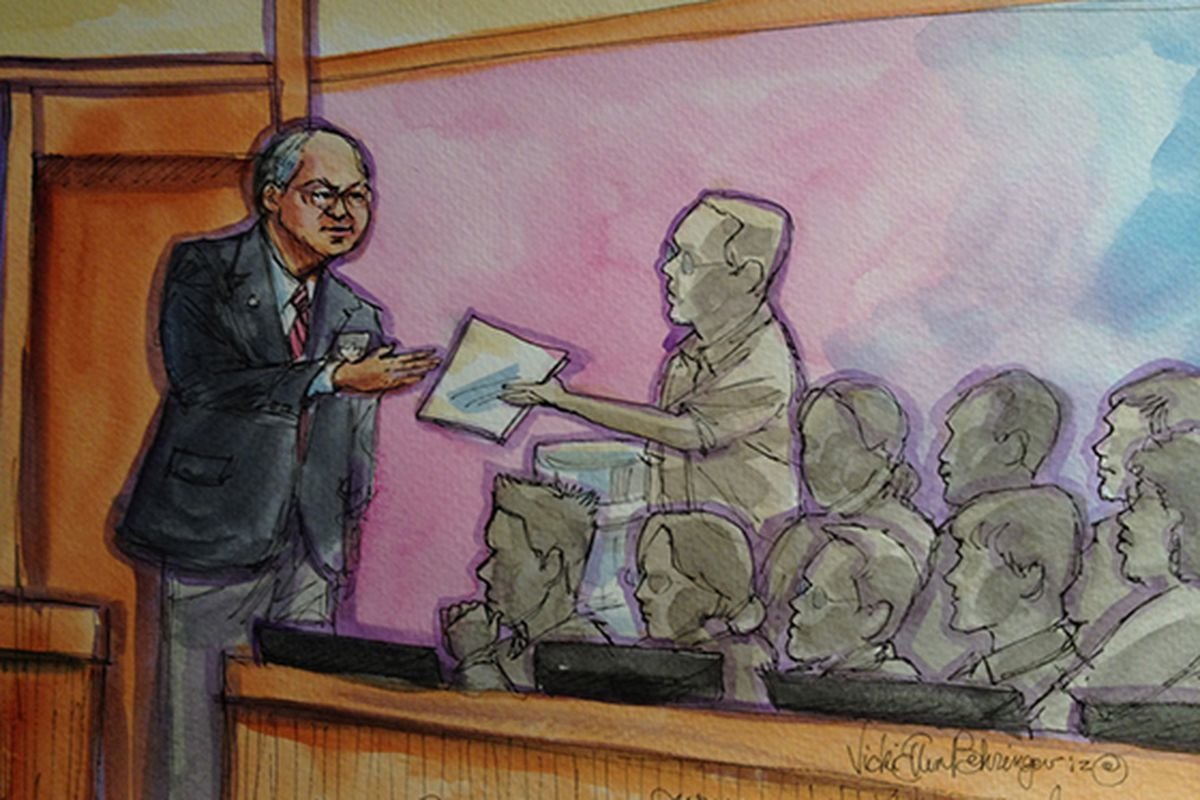
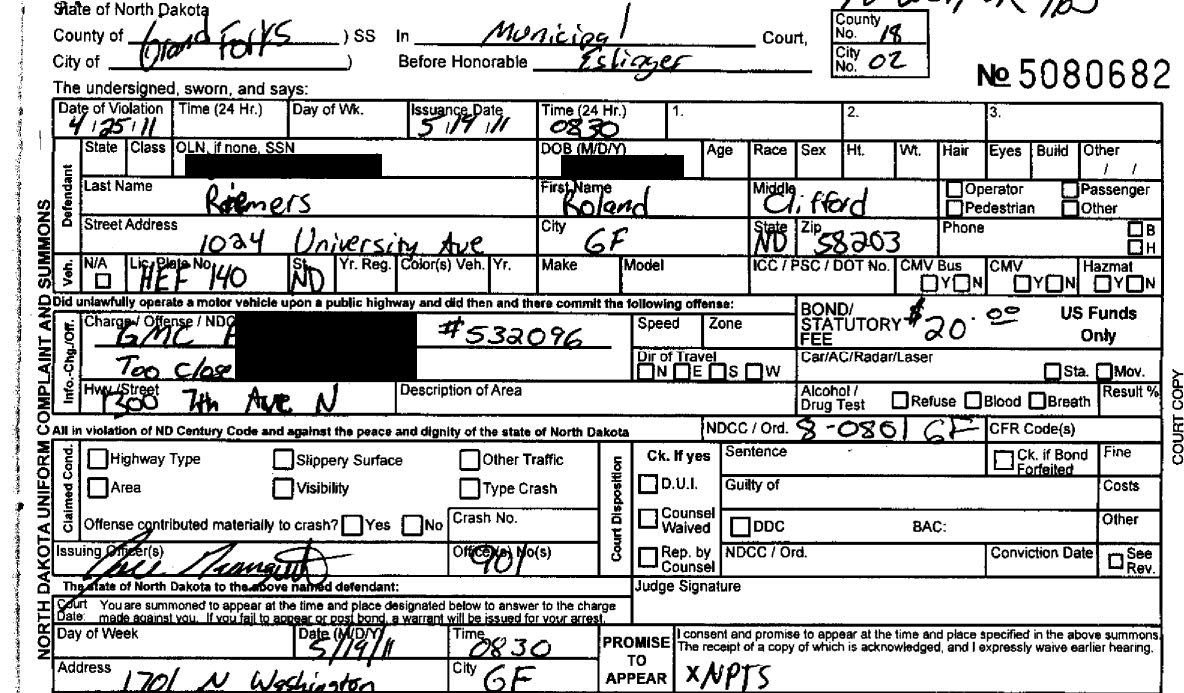
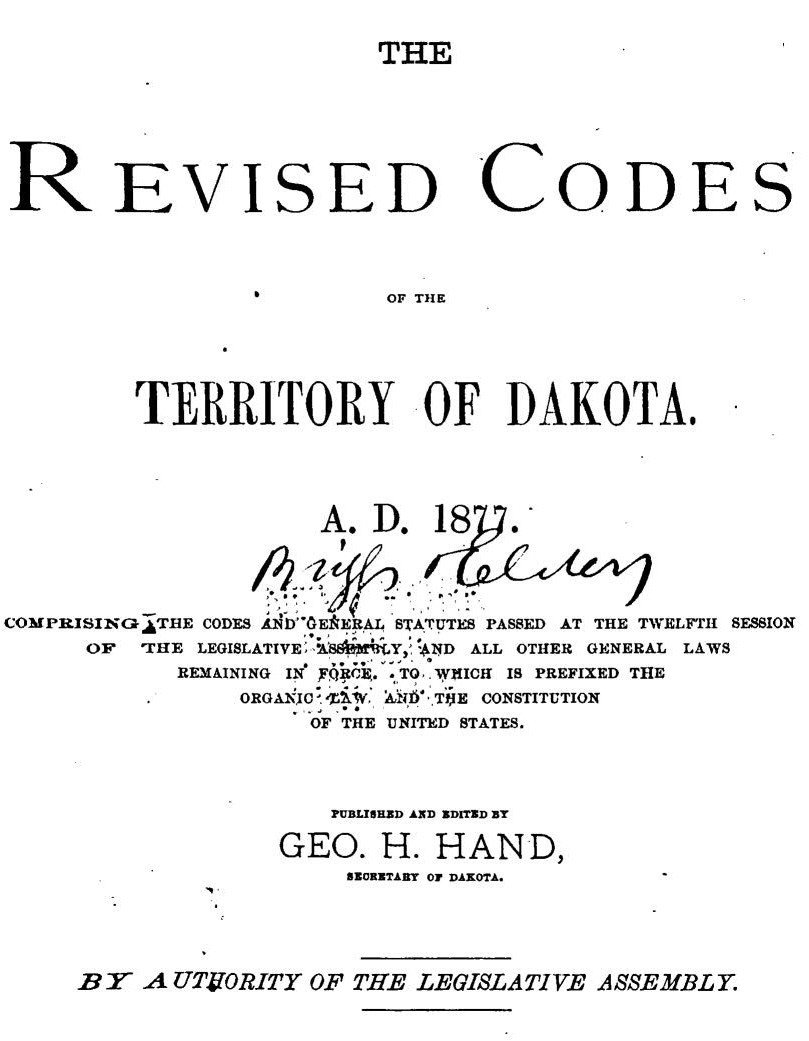
Brown or Riemers?
State v. Brown (2009).
No right to jury trial for violation of county animal control ordinance classified as infraction. New classification of offense, not punishable by jail.
Riemers v. Eslinger (2010).
Non-criminal traffic violation punishable by $20 fine. Under Dakota In 1889, a jury trial was guaranteed for an offense punishable by a fine of $20 or more. Territorial law permitted cities to comprehensively "regulate traffic . . . upon the streets" C.L. 885(20)
Smith v. Isakson
- Charged with Infraction under Bismarck ordinance
- Not punishable by jail, only fine
Application to Smith's charges



Smith holding
where the North Dakota Constitution and the Compiled Laws preserved a right to a jury trial for a crime in 1889, the constitution still provides a defendant the right to a jury trial for the crime today
Smith result
"Under N.D.C.C. § 40-18-15.1, a jury trial can be held only in district court even when a defendant is entitled to a trial by jury in a municipal court matter."
"[T]he matter must be transferred to district court for trial."
Application to other situations
Consistent with Smith and Riemers,
- A municipal court facing this issue should examine territorial law relating to a municipality's power to punish the charged conduct and whether such a charge was subject to a right to jury trial in 1889.
- The Court in Riemers and Smith described territorial law as guaranteeing a jury trial "where the ordinance authorized imprisonment for ten or more days or a fine of twenty or more dollars."
Looking Further
Resources
1887 Compiled laws and other materials are collected and available at https://ndconst.org
Jury Trial Under N.D. Constitution
By Jerod Tufte
Jury Trial Under N.D. Constitution
Discussion of Smith v. Isakson 2021 ND 131
- 266



